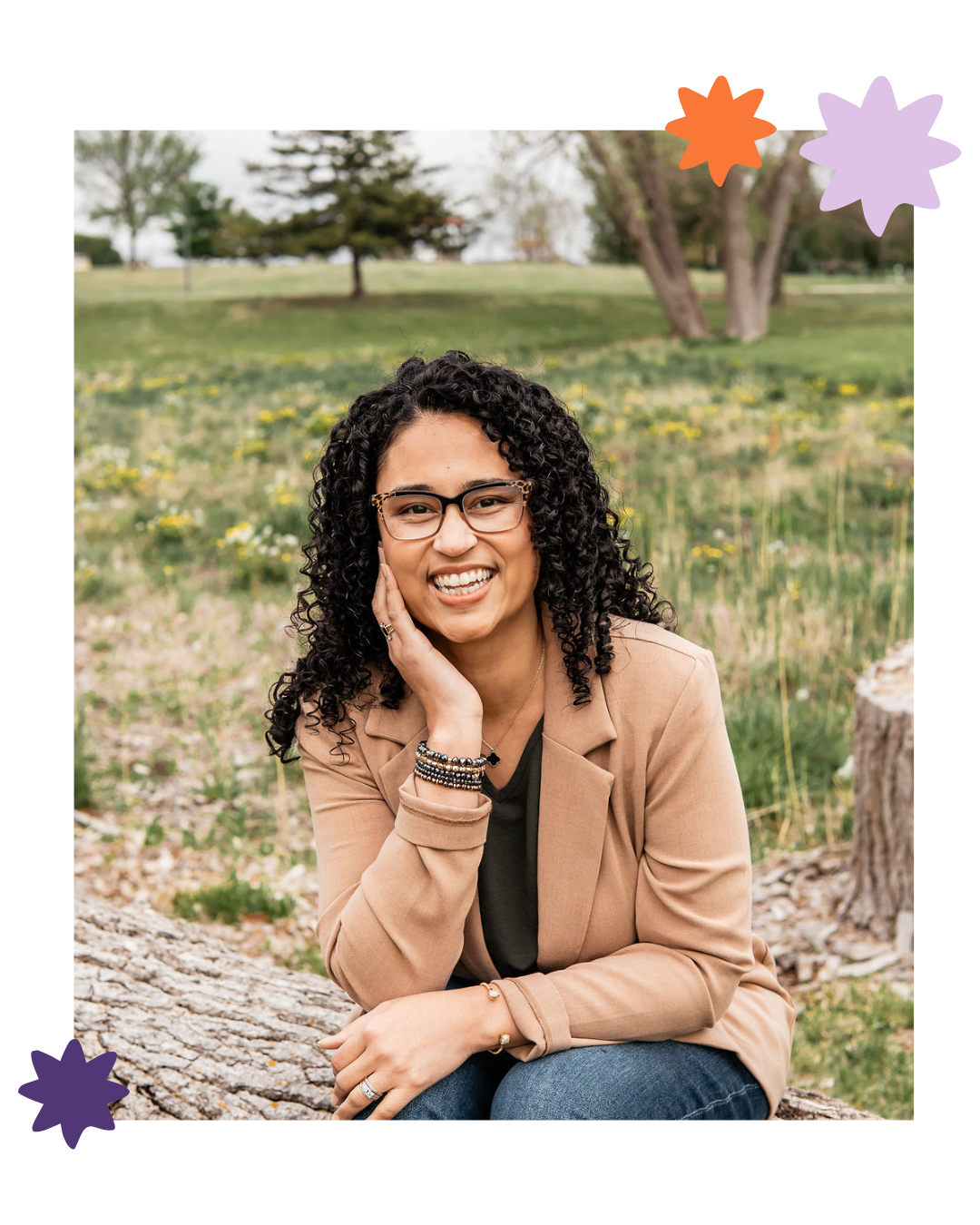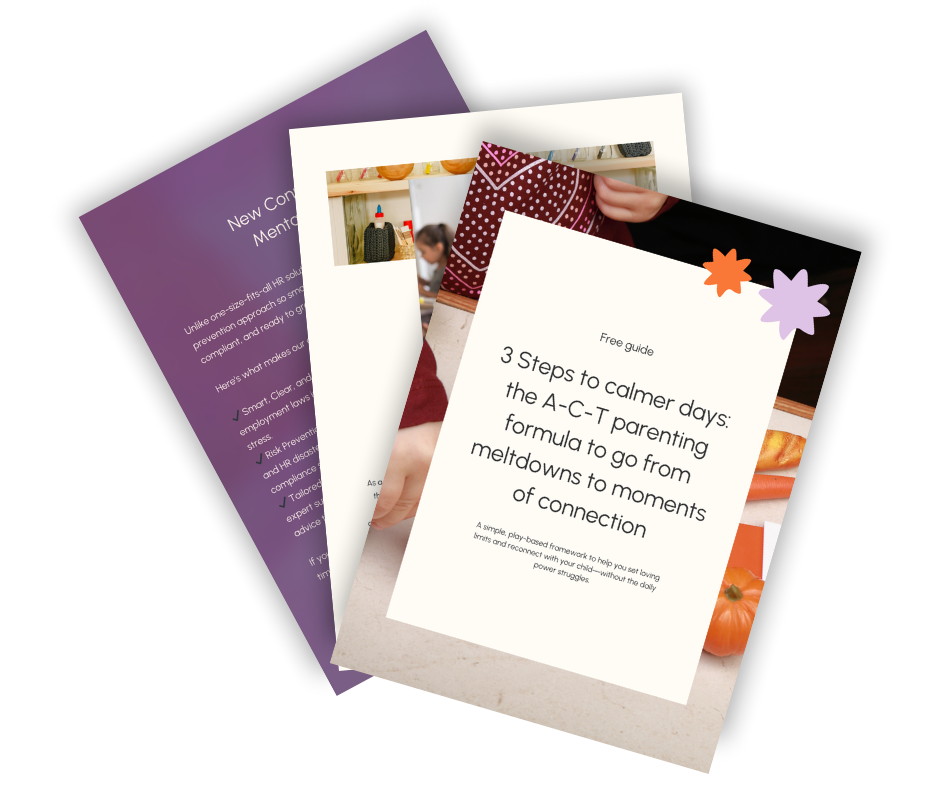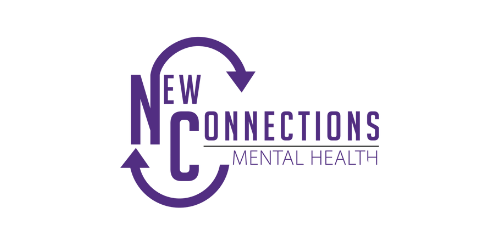Therapy for children in Hays, Kansas
This is paragraph text. Click it or hit the Manage Text button to change the font, color, size, format, and more. To set up site-wide paragraph and title styles, go to Site Theme.
What is therapy for children?
Therapy for children is a specialized approach that helps kids work through emotional and behavioral challenges in developmentally appropriate ways. Because young children don’t typically process emotions through talk alone, we use play therapy—a research-backed method that meets children where they are: in the world of play.
At New Connections, therapy is not about "fixing" your child. It’s about helping them understand their emotions, build confidence, and feel safe in their world. It’s also about helping you as the parent feel supported, informed, and equipped with tools that actually work.
Most common symptoms therapy can support:
- Big emotions that seem to come out of nowhere (meltdowns, anger, sadness)
- Frequent tantrums or emotional outbursts
- Anxiety around school, bedtime, or being away from parents
- Difficulty transitioning between activities or routines
- Trouble with friendships or social skills
- Aggression or withdrawal
- Trouble sleeping or changes in eating patterns
- Regressions (bedwetting, baby talk, separation anxiety)
How do I know if my child needs therapy?
Here are a few reflective questions to ask yourself:
- Does my child seem overwhelmed by their emotions or struggle to calm down?
- Do I often feel lost or frustrated when trying to help my child?
- Has a recent event (move, divorce, new sibling, illness, etc.) seemed to shift my child’s mood or behavior?
- Are their struggles affecting their ability to enjoy school, friendships, or home life?
- Do I wish I had more support and tools as a parent?
If you answered yes to any of these, therapy for children could offer the support your family needs.
How we provide therapy for children in Hays, Kansas
Our approach is grounded in play therapy, neuroscience, and trauma-informed care. Each child receives a personalized plan based on their needs and developmental stage. Our services may include:
- Child-Centered Play Therapy: Children lead the play in a safe space, which allows them to process feelings, build self-awareness, and feel seen.
- Parent Coaching: Because you are your child’s most important person, we equip you with insights and tools to support their growth at home.
- Filial Therapy & CPRT (Child-Parent Relationship Training): A structured 10-week program that empowers parents to use play-based strategies with their child.
- EMDR (for children who have experienced trauma): A gentle but powerful tool to help children process painful memories.
We believe in collaboration, compassion, and clarity. You’ll never be left guessing what’s going on or how to help.
What topics can we talk about in therapy for children?
- Understanding and expressing emotions in healthy ways
- Coping with anxiety and stress
- Adjusting to life changes (divorce, loss, new school, etc.)
- Building social skills and friendships
- Increasing self-esteem and confidence
- Reducing outbursts or aggressive behavior
- Creating emotional safety and trust
How to get support
Get a Personalized Plan
We match your child with the right therapist and create a tailored approach.
Start with a Consultation
A conversation to understand your child’s needs and your goals.
Begin Sessions
Your child attends regular sessions while you get ongoing support, too.
Grow and Move Forward
Our goal isn’t to keep you in therapy forever—it’s to help your child build lasting skills and your family feel confident handling whatever life throws at you on your own.
Therapy for children in Hays, Kansas
We’re Michelle Holdeman and the team at New Connections Mental Health. As specialists in therapy for children, we understand how confusing and isolating it can feel when your child is struggling. Our therapists are deeply trained in play therapy and bring warmth, expertise, and compassion to every session. We’re here to help your family move from daily meltdowns to calmer, more connected days.
Tips & resources for coping with emotional struggles at home
- Try using a feelings chart or "calm corner" at home
- Name emotions out loud to help your child build emotional vocabulary
- Create consistent routines to support predictability and safety
- Offer choices to help your child feel empowered
- Avoid asking "why" questions during meltdowns; focus on connection first

Hi! I'm Michelle Holdeman
Licensed therapist and play therapy specialist for families navigating big emotions.
I help overwhelmed parents, sensitive kids, and emotionally intense teens move from daily meltdowns to deeper connection—using play-based, trauma-informed therapy that truly works. At New Connections Mental Health, we create space for healing, growth, and lasting change—one session, one family, one feeling at a time.

At New Connections Mental Health, we believe every child and family deserves access to high-quality therapy and support. That’s why we offer payment options to help make the process as stress-free as possible.
Book your first session
Play Therapy Sessions are typically 45-55 minutes, and range from $75-$150 a session
FAQ
What type of therapy is best for children?
Play therapy is often the most effective approach for children ages 3–12. It allows them to process emotions and experiences through play, which is their natural language.
What is the 3-3-3 rule for anxiety children?
The 3-3-3 rule is a grounding technique: name 3 things you see, 3 things you hear, and move 3 parts of your body. It helps anxious kids stay present and calm.
Can therapy help with ADHD?
Yes. Therapy can support children with ADHD by building emotional regulation skills, improving focus, and helping them develop social and coping strategies.
How to treat anxiety in a child naturally?
Natural approaches include mindfulness activities, consistent routines, physical activity, sleep hygiene, and play-based strategies like those used in therapy.
What if my child won’t talk in therapy?
That’s okay. Children often express themselves through play instead of words. Our therapists are trained to understand and respond to the emotional content behind the play.
